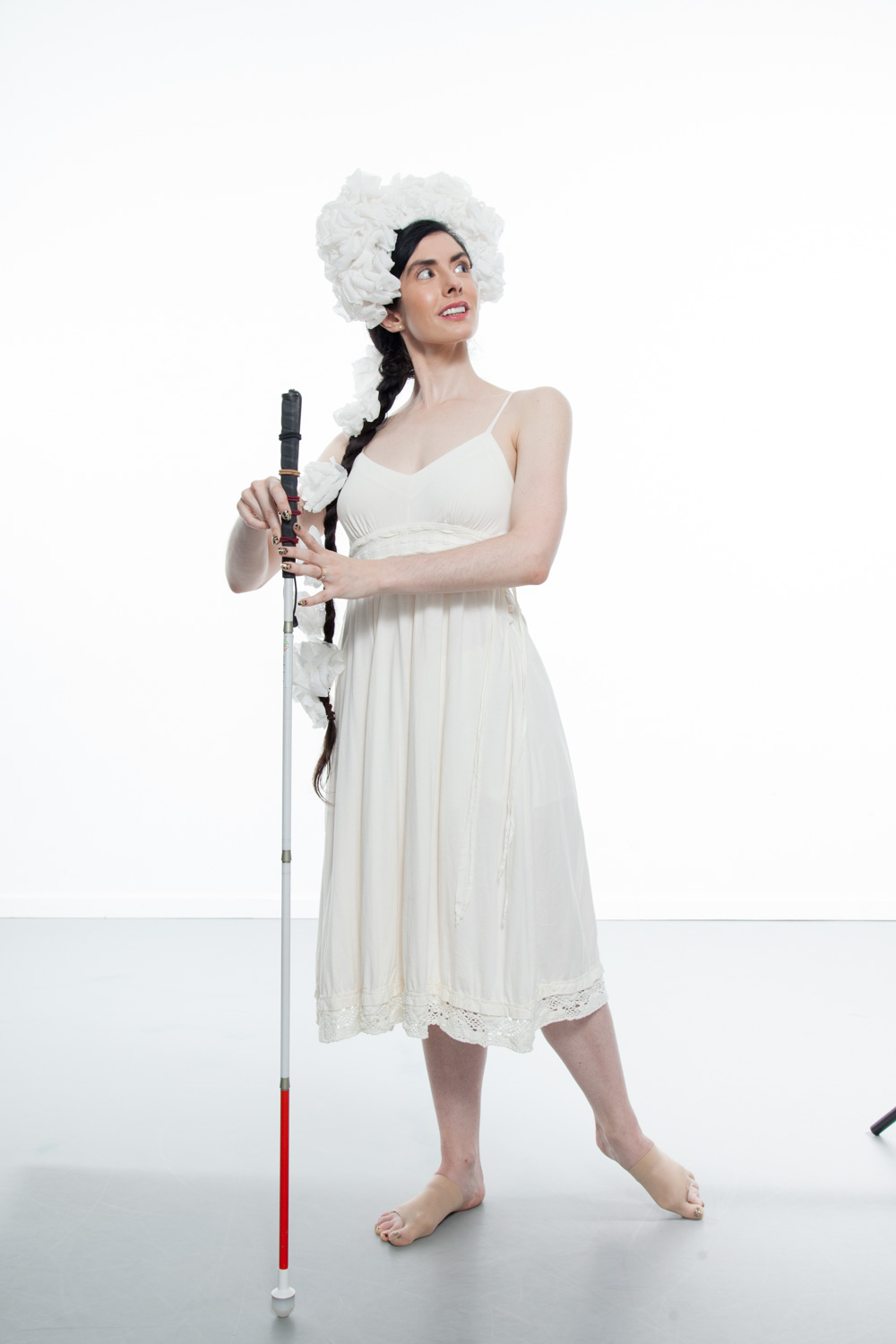Krishna Washburn is the sole educator and developer of curriculum for Dark Room Ballet, a comprehensive pre-professional set of courses designed to support blind and visually impaired artists and artists working in the audio description field. She is the only ballet teacher in the English-speaking world who teaches traditional blind dance technique at three levels: Introductory (for students with no prior knowledge of dance), Open Level (for blind and visually impaired dancers of all skill levels), and Pro Class (for pre-professional and working blind and visually impaired dancers). The Dark Room Ballet curriculum is designed for blind and visually impaired leaners at all phases of their training, from having no prior knowledge all the way up to the professional level, which is simply not offered by any other educator or institution, mostly because of the assumptions of what blind and visually impaired dancers can achieve artistically.
Krishna also teaches No Diagram Anatomy, which teaches gross and fine anatomy and biomechanics in the way that best supports blind and visually impaired learners. These anatomy courses fill an important void in the education of blind and visually impaired people, who are often explicitly denied education about their own physical bodies.
Her workshops on Audio Description for Dance are professional development courses for working audio describers, trainee audio describers, choreographers, and blind and visually impaired dance artists. These audio description courses address the inequity that occurs when audio description guidelines for film and television are imposed upon a radically different medium.
All Dark Room Ballet courses are tuition-free because of Krishna’s commitment to combating education denial, a common phenomenon in our ableist world in which disabled people are excluded from educational opportunities.
Krishna holds a Masters of Education from Hunter College, a BA from Barnard College, and multiple certifications from the American College of Sports Medicine with a focus in biomechanics. She has performed with many leading dance companies including Jill Sigman’s thinkdance, Infinity Dance Theater, Heidi Latsky Dance, Marked Dance Project, and LEIMAY. She has also collaborated with many independent choreographers, including Patrice Miller, iele paloumpis, Perel, Vangeline, Micaela Mamede, Apollonia Holzer, and most notably with A. I. Merino, who especially created a signature role for me (Countess Erzsébet Bathory), and with whom I founded the artistic collective Historical Performances. Recently, she completed her first choreographic commission, AN OUTBACK STORY, for Abilities Dance Boston.
Krishna is the Co-Director of Telephone, an activist screen dance documentary project meant to promote innovative artistic philosophies relating to audio description for dance with choreographer and filmmaker Heather Shaw, which premiered at New York University in December 2022. Telephone has been accepted by the following film festivals: Mill Valley Film Festival, San Francisco Dance Film Festival, San Souci Film Festival, Estrogenius Film Festival.
Krishna is a popular guest educator, in particular in the fields of self-audio description and curriculum development for blind and visually impaired dance students. She has taught workshops at The New School, Marymount Manhattan College, Sarah Lawrence College, Western Washington University, Rutgers University, University of Idaho, Philadelphia’s Hook and Loop, Gibney Dance, Indiana Blind Children’s Foundation, and she has been company mentor to the ShaLeigh Dance Works dance company for the development of their interactive dance theater project, enVISION, led by my mentee, DJ Robinson. Krishna has spoken about ableism in dance education at the 92nd Street Y, New York University, National Dance Educators Organization, and ArtSpark Texas. Krishna is a member of the Steering Committee for the Leadership Network for Accessible Arts Education, hosted by the Berklee College of Music.
As a writer of curriculum, Krishna has contributed extensive inclusive lesson plans and articles for learners of all ages in the GIVE: Guide to Teaching Artistry in Inclusive Settings created by Teaching Artists for Teaching Artists working in Integrated Co-Teaching (ICT) Classrooms in New York City and beyond, and will be contributing a chapter on ballet education for blind and visually impaired learners to The Oxford Handbook for Ballet Pedagogy, publication in 2025.
Last updated:
November 2023
